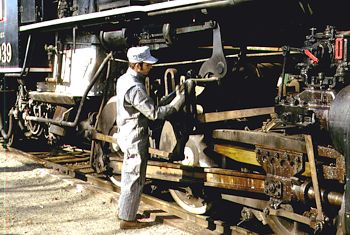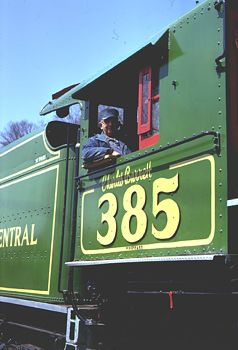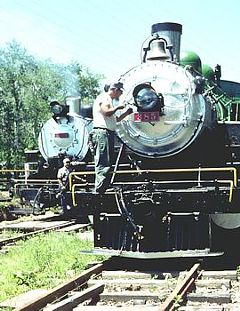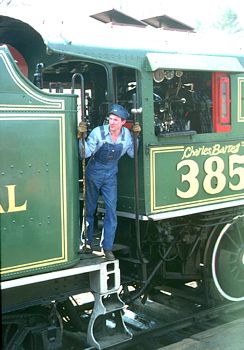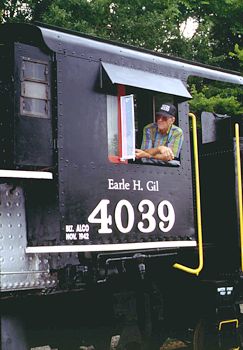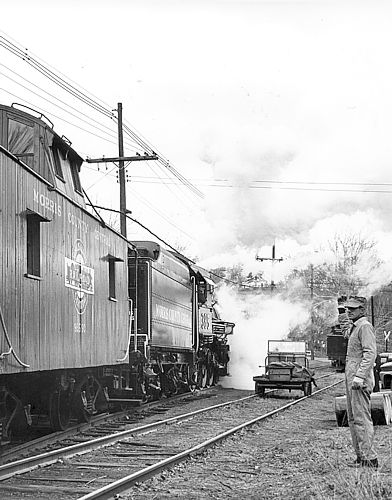Once situated in Newfoundland, Gil spearheaded the construction of an enginehouse and new shop/maintenance facilities at Green Pond Junction (the one-time interchange between the Susquehanna and the Jersey Central’s “Wharton & Northern” line). In time, improvements to the MCC staging area at Newfoundland were also made, such as loading platform, restrooms, gift shop caboose and snack car facilities. The station itself, however, was not owned by the MCC, and its owner, strangely enough, never permitted the MCC to repair or restore the classic wooden depot, built in 1872, even when Earle Gil offered to maintain the structure at his Railroad’s expense. The station remained an unfortunate eyesore throughout the MCC’s existence at Newfoundland.
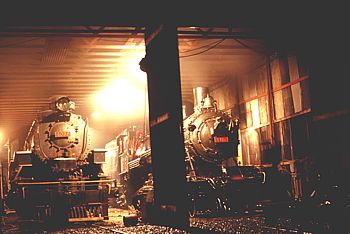
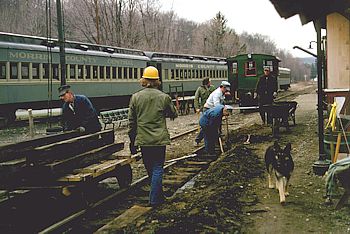
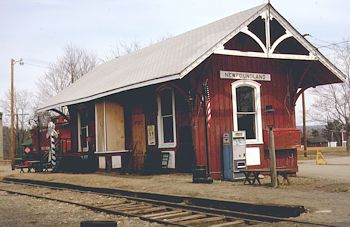
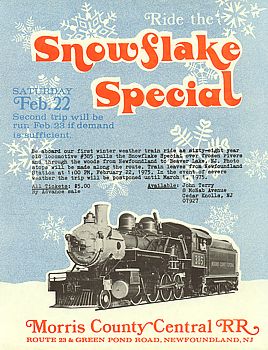
The route of the Susquehanna line took the MCC’s trains through a scenic area overlooking the Oak Ridge Reservoir, through woodlands, around a horseshoe curve, as well as a series of “S”-curves and across several bridged rivers and streams. Though the popularity of this impressive ride over a railroad originally constructed in the 1870s and its closeness to the New York metropolitan area seemed to assure its success, the economics and the recurring gasoline shortages of the late 1970s were a harbinger of defeat for the Morris County Central.
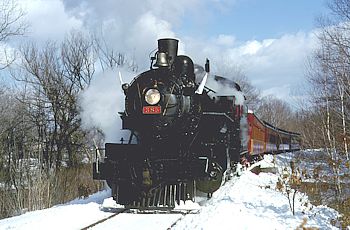
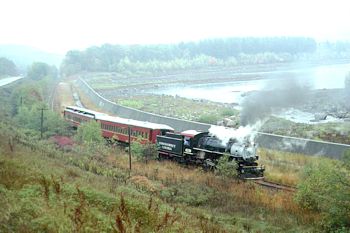
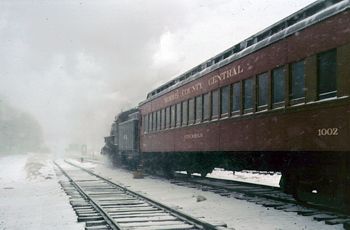
Earle Gil’s dream of a preserved, operating, historic steam-powered railroad ended on December 14, 1980 when Locomotive No. 4039 pulled the Railroad’s last two revenue runs from Newfoundland to Stockholm, NJ and return. Overwhelmed by skyrocketing costs and the looming specter of major, heavy repairs needed for the steam locomotives, the MCC closed the final chapter of a 15-year run on that date.
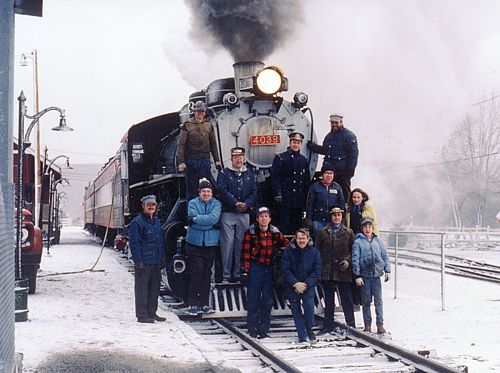
Today, the MCC is remembered as a highly-respected example of what a conscientious group of individuals, led by a true visionary, could accomplish with moderate resources and good taste in a effort to preserve historic railroad equipment and present to the public a bit of bygone Americana. For this we owe our thanks to Earle Gil and the MORRIS COUNTY CENTRAL RAILROAD.
